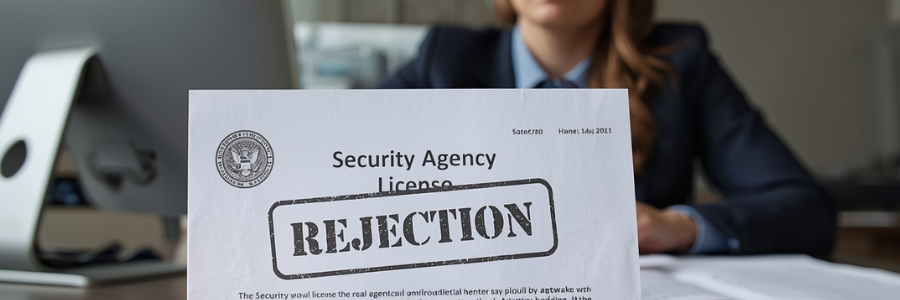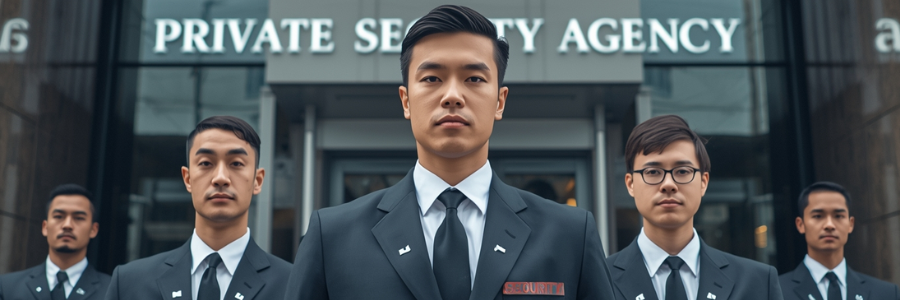Building Trust For Your Security Agency With PSARA License
In the recent years, there has been a surge in number of business establishments in India. As these commercial undertakings continue to grow, they are increasingly influencing the landscape of the nation. These establishments are accelerating competition, jobs, growth, and innovation. It has also lead to increase in demand for security personnel to safeguard assets and intellectual property of the business. As a result, numerous private security agencies have proliferated in the past few decades.
However, the way private security agencies operate has been a matter of concern for the authorities. These agencies hire personnel without conducting any due diligence on their background, ability, and records. The absence of due care in verifying these aspects has given rise to serious security implications. To curb this, the government introduced the PSARA Act, of 2005 which came into effect in March 2006.
Let’s delve deeper and comprehensively understand the PSARA licensing norms, how to Apply for PSARA License, and its role in building trust and credibility for security agencies.
What is the PSARA License and PSARA Act 2005?
The Private Security Agencies Regulation Act (PSARA) licence is necessary to operate a private security agency in India. The PSARA Act 2005 mandates that all such agencies must obtain PSARA licence and function within legal boundaries. The act was created to regulate these entities throughout the subcontinent, i.e., on Pan-India level.
The act governs and supervises the functioning of agencies that offer a wide range of security services, including deploying security personnel in residential complexes, organizations, and individuals. Regulation of these agencies is necessary to elevate their professionalism and quality of services.
Private security agencies are businesses formed to offer security services to both corporations and individuals alike. Thus, agencies which provide security personnel (bodyguards) for individuals are also required to obtain PSARA license.
Agencies must understand the Emerging Security Trends Post-PSARA Regulations to stay compliant with the PSARA regulations and meet standards for operations, training, and recruitment. They must abide by the rules to function lawfully and gain the confidence of existing and potential clients.
How to Get a PSARA License under PSARA Act 2005?
To Apply for PSARA License, the applicant has to submit an affidavit specifying the details as requested by the authorities and establish a system for training its security guards and supervisors. To be eligible for PSARA registration, the applicant must fulfill certain criteria such as the company must be incorporated under the Companies Act 2013. The director of the agency must hold Indian citizenship, must be a minimum of 18 years old, and not be held as a convict within a specified timeline. In addition, he/she must possess sufficient financial resources to carry out business-oriented expenses.
The agency is required to recruit security guards following certain conditions such as he/she must be an Indian citizen, be an individual between 18 to 65 years of age, must meet all the desired physical attributes, must have obtained necessary training, etc.
To obtain a PSARA license, the applicant first has to organize all the necessary documents such as a PAN, GSTIN, identity proof of employees and directors, agency office address, and photographs of promoters, among others. Further, it must enter into a MOU (Memorandum of Understanding) with a training institute to train its candidates. File an application using Form-I with concerned authorities that offer PSARA licenses. After filling out this form, the applicant has to obtain an NOC (No Objection Certificate) from the local police department. Upon police verification, government authorities will examine the application and proceed to either reject or grant the license.
Understanding the Costs of Maintaining a PSARA License is also essential as the registration fees varies as per whether the agency operate within one state, more than one state, or in the entire country.
How does PSARA License Build Trust and Credibility?
Agencies who Apply for PSARA License and successfully obtain the licence demonstrate its legality, reliability, professionalism, and culture of accountability.
- Legal Compliance: The regulatory oversight over private security agencies fosters greater legal compliance. The act leaves no room for vagueness and ambiguity as such establishments must obtain a valid license before commencing operations. If they fail to comply, agencies will attract serious penalties, including fines, cease of operations, and imprisonment in the worst-case scenario. As a result, legal conformity becomes an essential function within the organization, enhancing trust among its service users.
- Client Confidence: The license channelizes efforts and resources of agencies towards rendering high-quality security services. It necessitates training security guards and conducting due diligence before recruitment. In addition, even the appointment of promoters and directors in the company is done by complying with a list of regulations. All this ensures that the agency provides security guards that are not picked just randomly but rather trained and made qualified to do their job.
- Access to Contracts: A PSARA licence open up lucrative avenues by enabling the agency to enter into government contracts. This highlights their credibility, timely compliances, and conduct of operations that abide by the law. It helps private security agencies to receive a form of recognition from the government authorities which play a pivotal role in enhancing trust and credibility in its business operations.
- Credibility: PSARA license is a proof that the agency operate legally, adheres to the specified industry standards, and undertake necessary background checks before recruiting security personnel. All this enable clients to place their faith in agency’s services and build positive perception and reputation for professionalism over the years.
- Employee Confidence: Private security agencies now operate under a legal framework. This boosts confidence of employees connected with these agencies as it now falls under the formal economic ecosystem. The legal regulations protect workers from exploitations and discrimination, and provide framework for other social security benefits.
Is PSARA License a Good Investment for Small Security Agencies? The PSARA licence is considered a good investment for every private security agency, irrespective of its scale and size. The authorization assists these entities in enhancing their credibility and ensure legal compliance which is crucial to build trust in the market.
Challenges in Obtaining a PSARA License in India
Apply for PSARA License to venture into the security business realm. Once you obtain your license, commence operations of your business within six months from the date of grant of registration. Set up your office and recruit security guards who will act as front-line in safeguarding your client’s safety and interest. Grant of a PSARA license is a rewarding authorization owing to the numerous benefits it brings to the table. However, it also comes with a set of challenges, such as:
- Complex Regulatory Process: Apply for PSARA Licence is not a simple task! The process involves navigation through the complex procedures, fulfilment to stringent criteria, necessity of conducting background checks, need of compliance with infrastructure and training standards, and adherence to regulations that varies state by state.
- Staffing and Training: The PSARA guidelines establish various rules for the security guards. For instance, the personnel must be trained and prepared to handle a wide range of situations, including property protection, crowd control, suitable actions in case of emergencies, dealing with suspicious individuals, etc. The act also prescribes the optimal behavior one must have while on duty, must pass physical tests to effectively perform their duties, and the professionalism and ethical conduct a security guard must maintain while interacting with clients and the public.
- Competition: The private security market is lucrative and equally competitive. Many agencies propose their best candidates to enter into contracts with big corporations and high-profile clientele. Thus, it becomes important to create a security agency venture that provides the best and highest-quality services, specialized expertise, and reliable security guards to enhance customer satisfaction and trust in the business.
How PSARA License helps in Gaining a Competitive Edge in Security? A security agency formed under the legal ambit of PSARA act is a sign of credibility and legitimacy. The license is a valuable asset which indicate the agency’s commitment to stipulated standards. When the agency bid for a contract, the license makes it stand out in the crowd and act as a deciding factor.
In addition, the PSARA Act lays down guidelines to appoint supervisors who will direct and oversee the agency’s operations. These individuals ensure that security guards follow prescribed procedures and perform their duties in the right manner. According to the act, the agency must appoint one supervisor over fifteen (15) security guards. Further, supervisors must possess a minimum of three years of work experience in the Navy or Army.
Final Thoughts
Overall, the major objective behind enacting the PSARA Act was to ensure that security agencies operate within legal parameters and remain accountable to specified regulatory mechanisms. In addition, they were made liable to adhere to specified guidelines and contribute to the overall security of the public.
To Apply for PSARA License, applicants have to sail through the intricate regulatory guidelines, including procurement of NOC from the local police department. To streamline the entire process of registration, we created a team that possesses in-depth knowledge of PSARA rules and regulations. With Legal Raasta Private Limited – a PSARA Licence consultant – receive end-to-end support, expert guidance, personalized service, and faster licensing approval.










